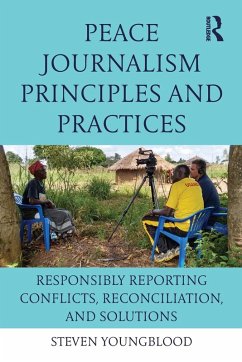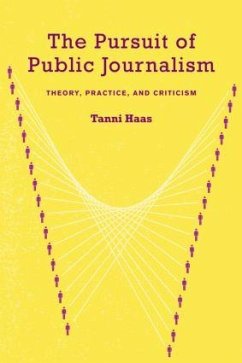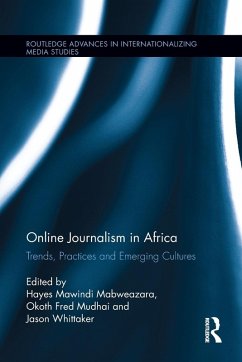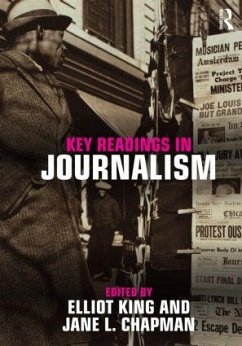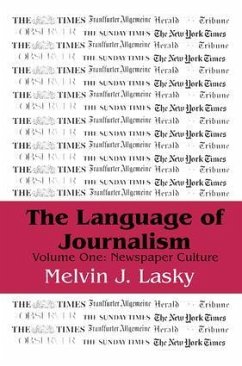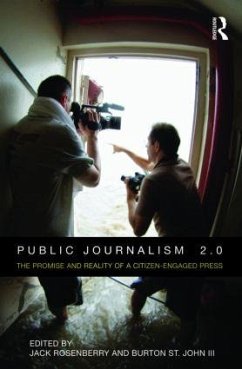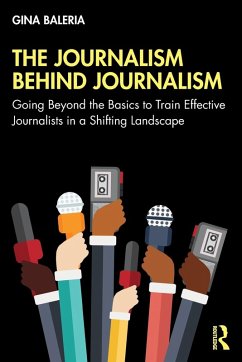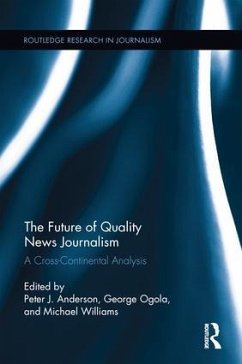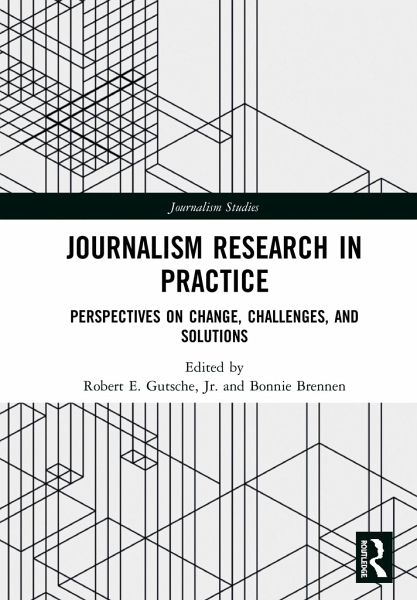
Journalism Research in Practice
Perspectives on Change, Challenges, and Solutions
Herausgeber: Gutsche, Jr. Robert E.; Brennen, Bonnie
Versandkostenfrei!
Versandfertig in 1-2 Wochen
173,99 €
inkl. MwSt.

PAYBACK Punkte
87 °P sammeln!
Journalism Research in Practice: Perspectives on Change, Challenges, and Solutions is a unique collection of research on journalism written for journalists and wider audiences. Based on scholarship previously published in Journalism Practice, Journalism Studies, and Digital Journalism, authors have updated and rewritten their works to make connections to contemporary issues. These 28 studies include perspectives on modern-day freelancing, digitization, and partisan influences on the press. They appear in four distinct sections: ¿ Addressing Journalism in Times of Social Conflict ¿ Advancemen...
Journalism Research in Practice: Perspectives on Change, Challenges, and Solutions is a unique collection of research on journalism written for journalists and wider audiences. Based on scholarship previously published in Journalism Practice, Journalism Studies, and Digital Journalism, authors have updated and rewritten their works to make connections to contemporary issues. These 28 studies include perspectives on modern-day freelancing, digitization, and partisan influences on the press. They appear in four distinct sections: ¿ Addressing Journalism in Times of Social Conflict ¿ Advancements in New Media and Audience Participation ¿ Challenges and Solutions in a Changing Profession ¿ Possibilities for Journalism and Social Change This book is a collection by leading scholars from the field of Journalism Studies who have revisited their previous work with the intent of asking more questions about how journalism looks, works, and is preparing for the future. From coverage on Donald Trump and alt-right media to media trust, verification, and social media, this volume is relevant for practicing journalists today who are planning for tomorrow, students learning about the field and its debates, and scholars and educators looking for approachable texts about complex issues.





